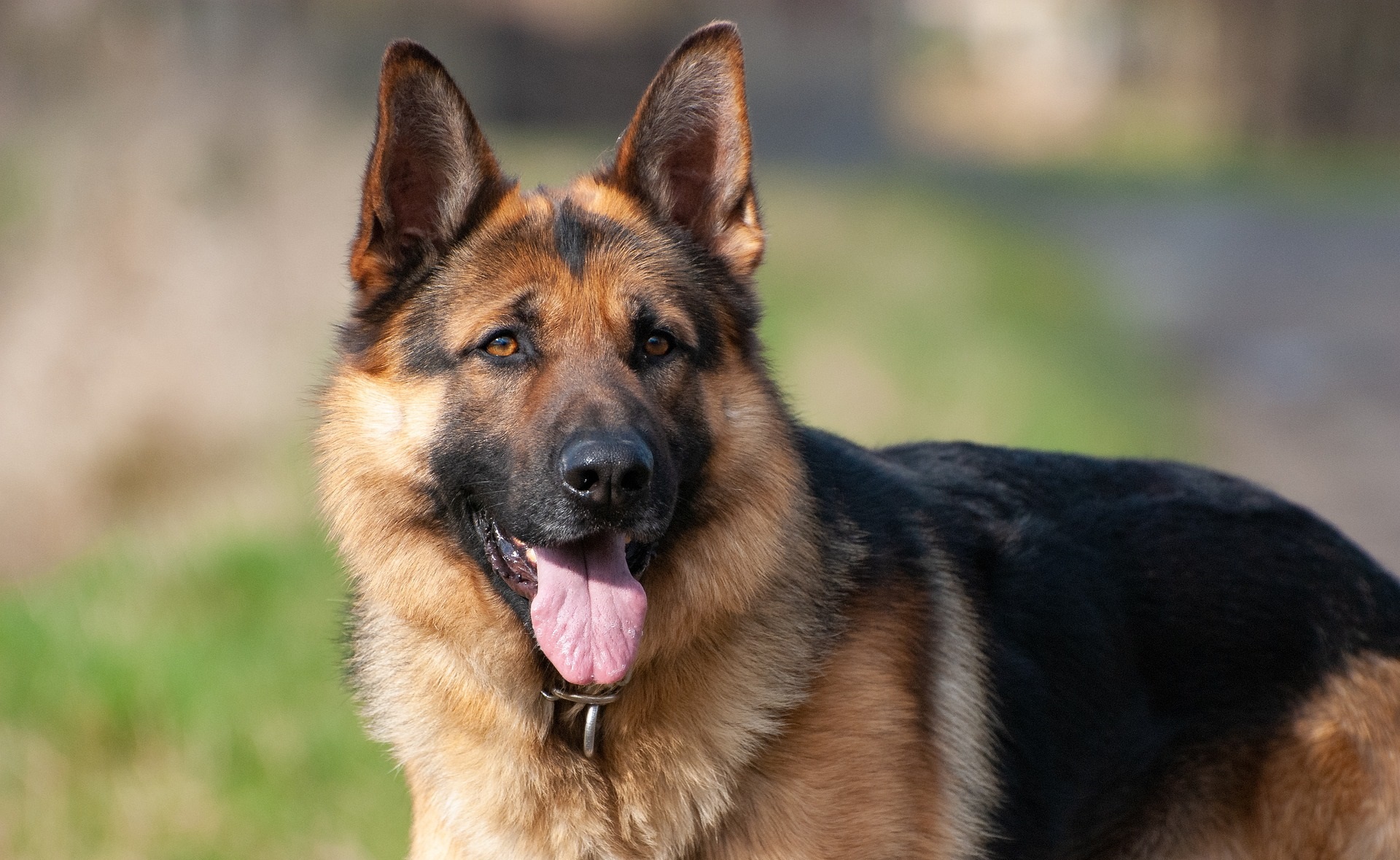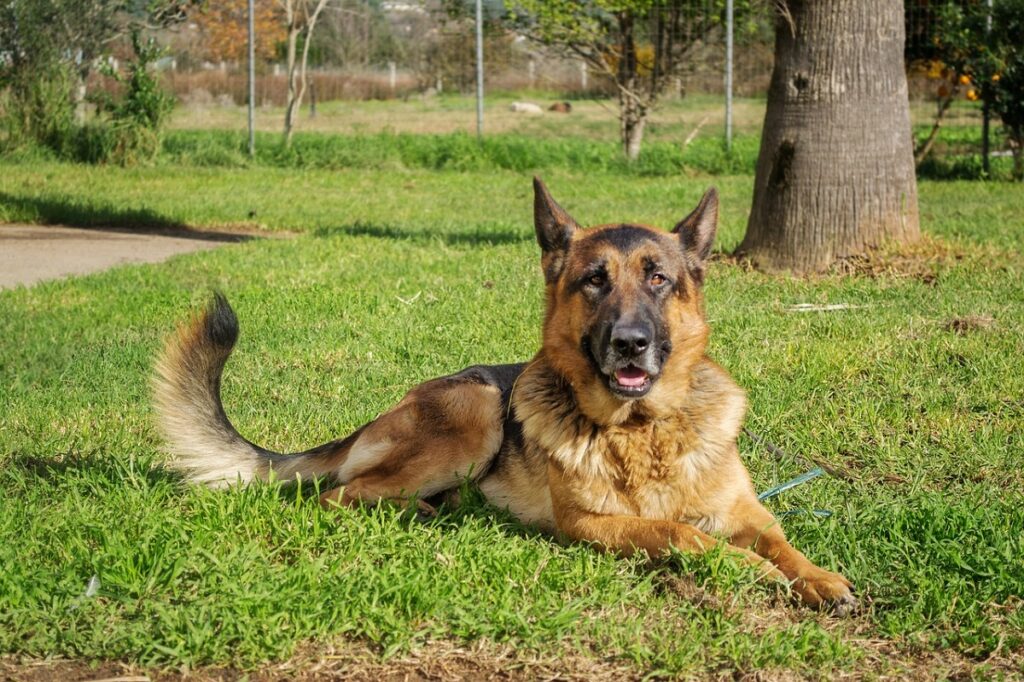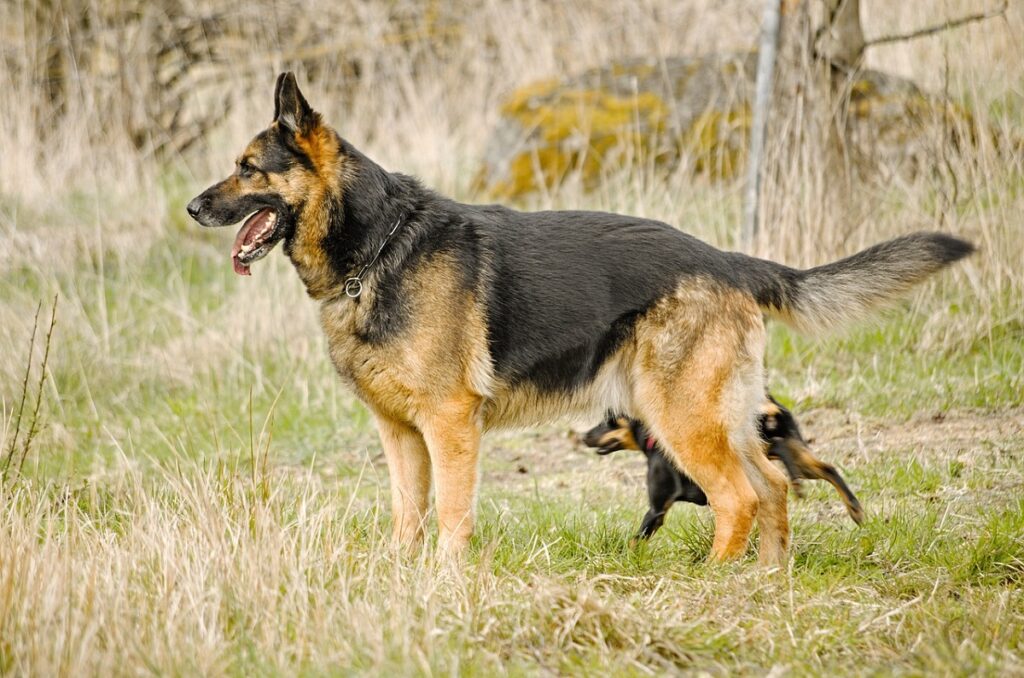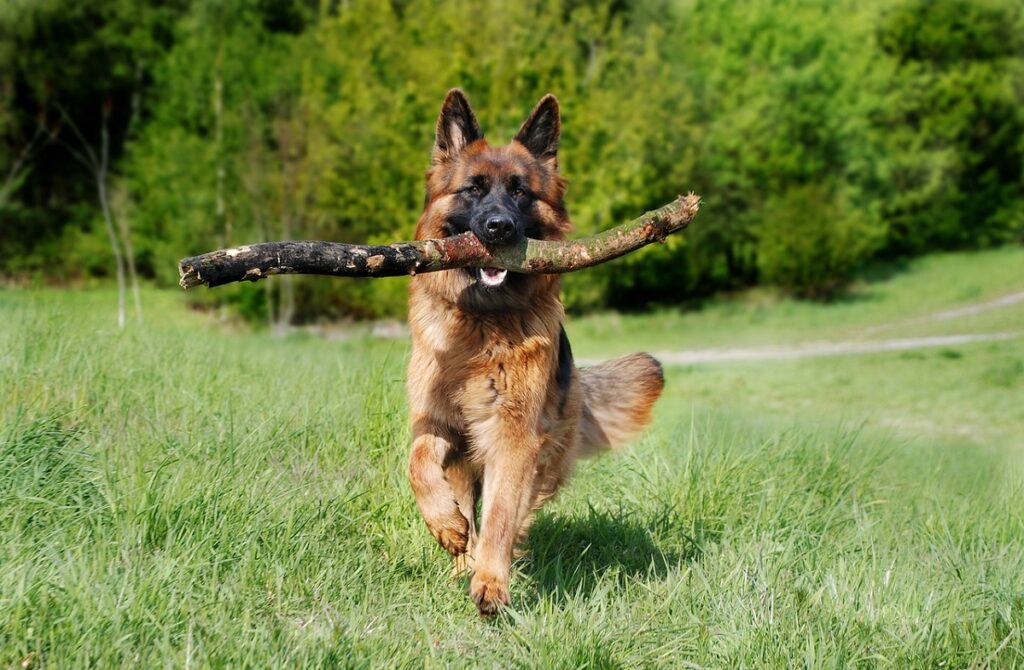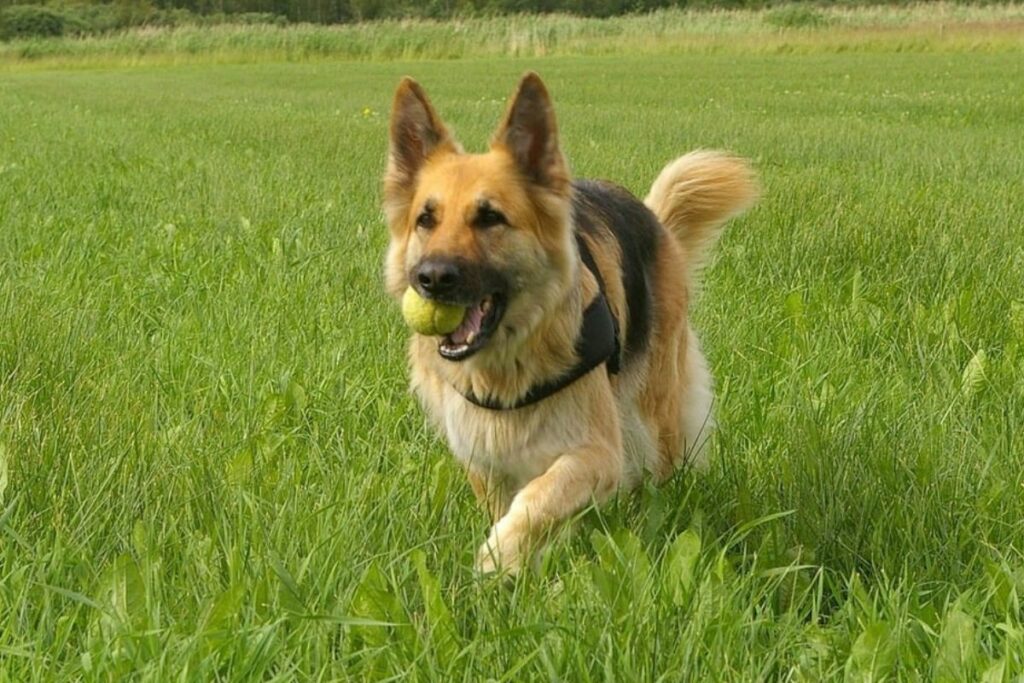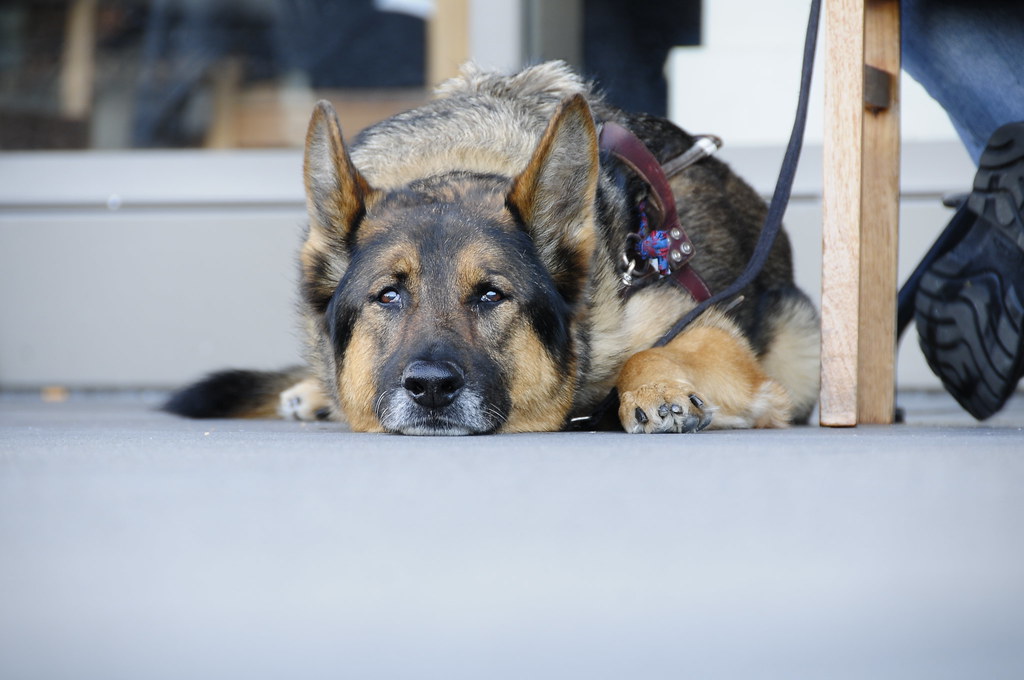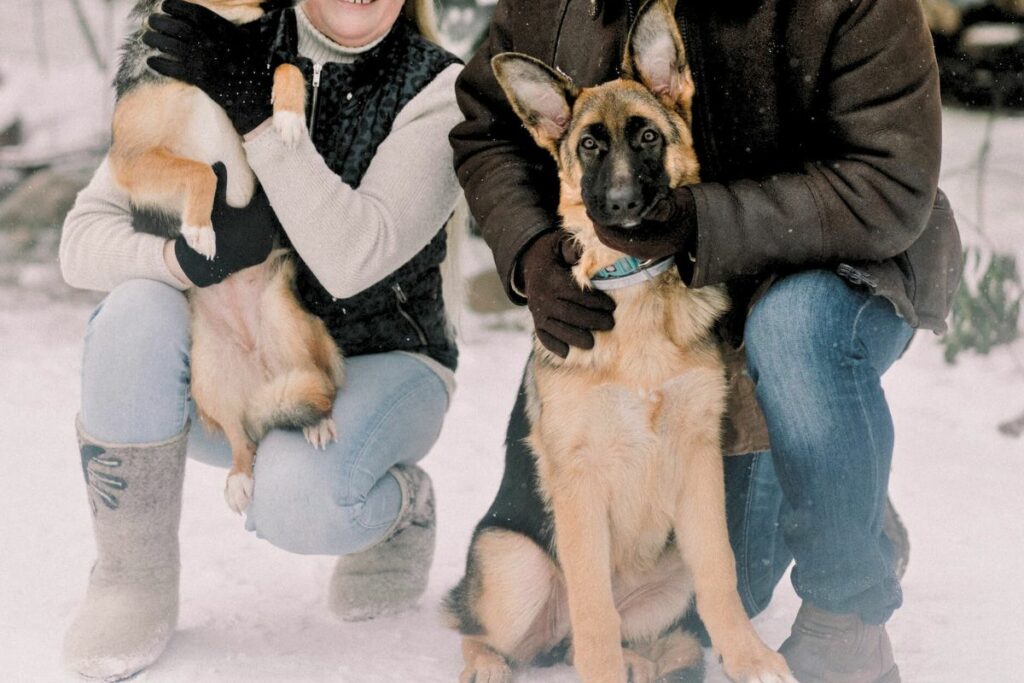German Shepherds: loyal protectors, intelligent companions, or potential hazards? Their imposing presence and history as working dogs often raises the question: are they truly suitable for family life? While their protective instincts and energy can be incredible assets, understanding their needs is crucial. This exploration delves into the complexities of German Shepherd ownership, examining their temperament, training requirements, and suitability for families with children, ultimately answering the question: can these powerful canines thrive as loving members of a family home?
People often pick puppies based on their cuteness or because they’ve seen the breed in movies or TV shows. However, many don’t anticipate that the small pup will grow into a 60-80 pound adult with high energy and a playful nature.
Not all large dog breeds are suited for apartment living or relaxed family lifestyles. A dog’s adjustment to their new home depends on the individual dog, its training, and its intended role or function.
Moreover, choosing a good family dog is a big decision, especially with kids at home. While some breeds are known to be great with children, others might be on the ‘insurance blacklist,’ a list used by insurers to identify breeds they see as riskier, potentially affecting your insurance.
German Shepherds are on this list, but don’t let that deter you. They can be wonderful family pets if you consider a few extra factors and steps to ensure you find the right fit for your family.
History of German Shepherds
The German Shepherd, also known as the Deutsche Schäferhund, was first bred in Germany in 1899 by Captain Max von Stephanitz, a former veterinary student who emphasized breeding dogs for work.
Arriving in Western Australia in 1904 as ‘German Sheep Dogs,’ they spread to Melbourne by 1925. However, in 1928, the Australian Federal Government banned their import for 43 years, though some were still smuggled in. This ban was lifted in 1972, with some restrictions lasting until 1976.
After the ban, the breed’s popularity soared in Australia, becoming the most popular dog breed in the 1990s. Today, German Shepherds are cherished family pets and still serve notably in protective services.
Physical Characteristics of the German Shepherd
Before adding a German Shepherd to your family, it’s crucial to consider several factors. Ideally, adopting a young pup that can grow alongside your children is beneficial. Early socialization and training are also key.
Additionally, understanding the breed’s basic traits is important. For instance, if you’re looking for a small dog, a German Shepherd might not be suitable, as they grow quite large despite their initial small size as puppies.
Now, let’s delve into some interesting facts about the intelligent and noble German Shepherd:
Size
The German Shepherd is a large, muscular dog with a longer body than height and strong hindquarters. They typically grow to be 22-26 inches tall and can weigh between 50 and 90 pounds, firmly placing them in the large breed category.
This means they won’t stay small for long. Their size, combined with their high energy levels, means they can unintentionally overpower children during play. This highlights the importance of proper training for these dogs.
Personality
German Shepherds are known for their confidence, courage, intelligence, and gentleness, though they may take time to warm up to new friends. Their herding background contributes to their nobility and loyalty, both in work and towards their owners.
Often thought of as the quintessential guard or police dog, they possess a strong instinctive drive and self-confidence. They also have a playful side and enjoy games. As part of a family, they are affectionate and smart, offering a lifetime of love and joy.
They have a balanced temperament and are one of the most versatile and trainable dog breeds.
Grooming Needs
The German Shepherd Dog sports a medium-length, double coat with a dense, harsh outer layer and a softer undercoat. They’re relatively easy to groom, needing just a quick brush every few days to manage loose hairs.
However, they do shed more heavily once or twice a year, requiring more frequent brushing to keep hair off your furniture and floors. Occasional baths are sufficient for this breed.
Regular nail trimming or grinding, ideally monthly, is crucial, especially if their nails don’t naturally wear down. Long nails can lead to pain and structural problems for the dog.
Exercise Needs
The German Shepherd, known for its active and athletic nature, needs ample exercise for both physical and mental health. Lack of enough exercise can lead to frustration and unwanted behaviors.
For a German Shepherd puppy, begin with short daily walks and playtime in a secure area. Always keep them on a leash, as even well-trained dogs can get distracted.
Engaging them in canine activities like agility, herding, tracking, and dock diving offers great exercise and mental stimulation, and it’s enjoyable for both the dog and the owner.
Training
Early socialization and puppy training classes are crucial for German Shepherd dogs, and ongoing obedience training is key to shaping them into adaptable, well-mannered adults. This breed is highly intelligent and an exceptional worker. Using consistent, positive, reward-based training methods will produce great outcomes.
They form deep bonds with their family, thriving best when they’re involved in family life and activities. Raising them within the household and including them in daily routines is essential for their happiness and well-being.
Health Problems
Most German Shepherds are healthy, but like all breeds, they can have certain health issues. Responsible breeders will test for conditions like degenerative myelopathy and elbow and hip dysplasia. Owners should also be aware of bloat, a serious condition causing abdominal swelling. Knowing its symptoms and emergency response is crucial.
Health problems in German Shepherds are often linked to breeding. Therefore, choosing a reputable breeder who conducts regular health checks is important. Additionally, maintaining regular vet visits and a healthy lifestyle for your dog can minimize health risks.
The National Breed Club recommends specific health tests, including a hip evaluation and a temperament test, to ensure the well-being of German Shepherds.
Life Expectancy
German Shepherds have a shorter lifespan compared to some other breeds, typically living 7 to 10 years. When deciding between adopting a younger or older dog, consider the implications, especially if you have children.
Raising a puppy alongside your kids allows them to grow up together, but it also means your children may face the loss of their furry friend at a young age. This is an important factor to weigh in your decision.
Are German Shepherds Aggressive?
German Shepherds are not inherently aggressive, but their behavior can depend on the individual dog and its training. While some may show aggressive tendencies, proper training and socialization can greatly mitigate this. It’s not accurate to generalize the breed as aggressive; much depends on their upbringing and environment.
One advantage of their protective nature is that German Shepherds can be excellent family guard dogs, providing security for homes and families. Originally bred for herding, their primary purpose wasn’t aggression. However, due to their strong protective instincts, some may develop aggressive behaviors if not properly managed.
With appropriate nurturing and training, German Shepherds can be loving, protective pets. They’re versatile, often used in search and rescue, drug and bomb detection, and as guide dogs for the blind, showcasing their diverse capabilities beyond protection.
Reasons Why German Shepherds Make Good Family Pets
German Shepherds (GSD) are great family dogs. Here’s why you should consider one:
1. Intelligence: They’re very smart, making them perfect for various tasks.
2. Loyal and Protective: They deeply care for and protect their owners.
3. Energetic: They have lots of energy, which is great for playing with kids.
4. Loyalty and Versatility: Loyal to their family, they can learn and do almost anything.
5. Top Guard Dogs: Known for their work in police forces, they’re excellent at keeping families safe.
6. Wonderful Companions: Friendly and loving towards family members.
7. Health and Diet: With a good diet and care, they’re a healthy breed.
8. Great with Children: If trained from a young age, they’re fantastic playmates for kids.
9. Adaptable: They can adjust to various lifestyles easily.
10. Exercise Partners: They need 30 minutes of exercise daily, helping you stay fit too.
Conclusion
Ensuring proper interaction between children and a new German Shepherd is crucial, requiring extra preparation. Before bringing the dog home, set clear rules with your family about interacting with the dog.
Start training your pup immediately upon arrival. Always supervise playtime between children and the dog, and teach your kids basic safety rules around dogs, such as not approaching dogs that are eating, sick, agitated, or injured.
A German Shepherd dog breed can be an excellent family pet with the right integration approach. When looking for the ideal dog, consider using platforms like Petfinder or checking out Rescue Groups if you’re interested in adopting a dog in need.
At Pet Yolo, we aim to provide all the necessary information to help you care for your pets in the best way possible.
German Shepherds can make excellent family dogs, but it’s not a guarantee. Their intelligence, loyalty, and protective instincts make them wonderful companions for active families committed to training and socialization. However, their size, energy levels, and potential for herding behaviors require careful consideration. Families with young children should be prepared for close supervision and consistent training. Ultimately, a well-raised and socialized German Shepherd can be a loving and devoted member of the family, enriching lives with their playful nature and unwavering loyalty.

